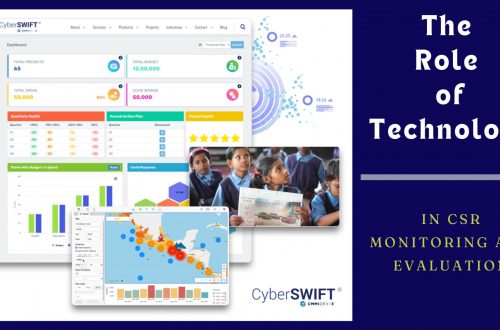
Changing Role of Corporate Social Responsibility (CSR) in Society
The concept of corporate social responsibility (CSR) has evolved over the years, and its role in society has also changed. In the past, CSR was seen as a way for companies to give back to the community and improve their reputation, but today, it is viewed as a critical part of a company’s operations and a key driver of long-term success and they are taking the help of CSR software(s) to achieve the goal immaculately. To understand, analyze and monitor the CSR activities in the organization.
CSR Helping in Strategic Business Planning:
One way that the role of CSR has changed is that it is now seen as a strategic business decision, rather than just a charitable act. Companies are realizing that CSR initiatives can positively impact their bottom line by improving their reputation, attracting and retaining employees, and building stronger relationships with stakeholders. For example, a company that invests in renewable energy sources and reduces its carbon footprint may be able to save money on energy costs and differentiate itself from competitors.
Application of CSR in Complex Social and Environmental Issues:
Another way that the role of CSR has changed is that it is now seen as a way to address complex social and environmental issues. As the world faces challenges such as climate change, inequality, and social injustice, companies are expected to play a role in finding solutions. CSR initiatives can help companies address these issues by supporting communities, promoting sustainable practices, and advocating for policies that benefit society. For example, a company may support education initiatives in disadvantaged communities, or work with suppliers to improve working conditions in the supply chain.

Additionally, the role of CSR has changed as it has become more transparent and accountable. In the past, companies were not always forthcoming about their CSR initiatives, but today, there is a greater emphasis on transparency and accountability. Companies are expected to disclose their CSR activities and progress, and stakeholders are increasingly demanding more information about how companies are addressing social and environmental issues. This increased transparency can help companies build trust and credibility with stakeholders, and it can also help drive continuous improvement in CSR practices.
Conclusion:
Overall, the changing role of CSR in society reflects the evolving expectations of companies and the increasing recognition of the link between business success and social and environmental well-being. As society faces complex challenges, companies are expected to play a more active and responsible role in addressing these issues and contributing to a sustainable future.

She is a Product Manager of M&E software for CSR & Land focusing on helping organizations all over the world manage and monitor all their activities with more ease and transparency. Sucheta is responsible for helping in better Monitoring & Evaluation of CSR and Land with Technology.





